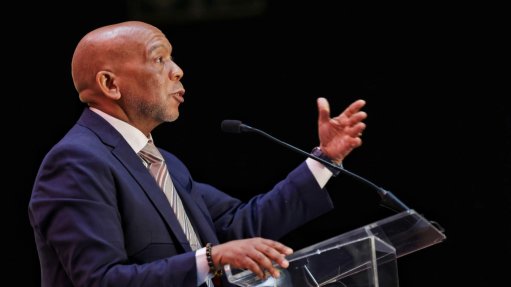GNU has made decent progress, but political instability now threatens economy
While the Government of National Unity (GNU) has made headway in several key areas, Business Leadership South Africa CEO Busisiwe Mavuso has voiced concern over the lack of progress on improving the economy, highlighting delays in State-owned entity reforms and political instability as key drivers behind the country’s economic stagnation.
“A year ago, few would have predicted that South Africa's GNU would still be standing today, let alone delivering meaningful reforms. Yet, here we are, with visa backlogs cleared, private partnerships finally emerging at Transnet and government departments contracting with world-class IT suppliers to advance digitisation,” she said in her weekly newsletter published on June 30.
Mavuso noted that the relationship between business and government under the GNU had been unlike anything experienced in recent memory.
“We've moved beyond the familiar dance of complaints and promises to genuine collaboration. Quarterly meetings with [President Cyril Ramaphosa] have produced tangible outcomes, not just photo opportunities,” she said, noting that the “wins” had been substantial.
For example, the Department of Home Affairs (DHA) has eliminated the visa backlog that cost the country numerous tourists and skilled workers. Processing times that once stretched for months now take weeks.
Also, Transnet had begun inviting private operators to run port and rail concessions, which is a breakthrough that Mavuso said seemed impossible just two years ago.
Further, government's IT procurement has been modernised, allowing departments to work with best-in-class suppliers rather than being trapped by outdated tender processes.
“These aren't small administrative tweaks. They represent fundamental shifts in how government operates, creating the foundation for the digital-first public service that the DHA is now pioneering,” Mavuso said.
However, she said it was important to be honest about where the GNU was falling short.
“Eskom's restructuring has hit unexpected delays in key areas and our logistics corridors still aren't receiving the focused attention they desperately need. Government and business have committed to short-term reform ‘sprints’ to address these bottlenecks, though the proof will be in execution,” she said.
More troubling, Mavuso said, was the broader economic picture.
“Earlier this year, confidence was building. You could feel it in boardrooms and investment committee meetings. Then the global trade environment shifted dramatically,” she said.
She proclaimed that the looming expiration of the current 10% tariff arrangement on July 9 could see South African exports to the US facing 30% tariffs, fundamentally altering trade flows and forcing rapid strategic adjustments.
Mavuso said business and government had been working overtime to navigate these international headwinds, engaging directly with their US counterparts as trade rules changed seemingly overnight. However, she said the situation required a stable coalition that could help South Africa deliver more value.
In this regard, she said the GNU's Achilles heel was political uncertainty. Mavuso noted that the GNU coalition partners had not established robust protocols for managing their inevitable disagreements without threatening the entire arrangement.
“The recent tensions have been particularly concerning, with threats of walkouts and the decision to boycott the national dialogue creating exactly the kind of instability that makes investors nervous.
“It is undermining the capacity to formulate and implement the urgently required policies that address our many challenges, and will undoubtedly continue to delay our ambitions for a capable State,” she said.
Mavuso asserted that this fragility was having real consequences.
“Business confidence, which had been steadily improving, is now tempered by questions about policy continuity and reform momentum. When political survival takes precedence over governance, everyone loses,” she warned.
Nonetheless, Mavuso said the business-government partnership remained energised and focused on accelerating reforms.
“Operation Vulindlela's second phase – including an ambitious programme to improve local government performance – launches with our full support. The challenges at municipal level are enormous, but business stands ready to contribute expertise and facilitate private investment in critical infrastructure,” she said.
Mavuso said that what was now sorely needed was political maturity from the GNU partners.
“South Africans didn't vote for this coalition to watch it tear itself apart over political positioning. They voted for stability and progress. The economic partnership we've built proves that collaboration works, but it requires a government confident enough in its own longevity to make bold decisions,” she said.
Mavuso posited that the GNU's “first year report card” showed a solid B+ performance on structural reforms, but an incomplete grade on political stability.
“Business will continue doing its part. The question is whether our political leaders will choose partnership over posturing,” she said.
Mavuso stated that the next 12 months would determine whether this government became a footnote in political history or the foundation for South Africa's economic recovery.
“Our economic trajectory is our most urgent priority. We must lift growth to the 3%-plus level that we aspired to at the beginning of the year, and political stability is a necessary ingredient. But then we have to knuckle down and change how this economy works, from the network industries to skills development.
“Organised business is committed to help make bold decisions and implement the changes needed. I hope we continue to be able to partner with a government with similar energy and focus,” she said.
Article Enquiry
Email Article
Save Article
Feedback
To advertise email advertising@creamermedia.co.za or click here
Announcements
What's On
Subscribe to improve your user experience...
Option 1 (equivalent of R125 a month):
Receive a weekly copy of Creamer Media's Engineering News & Mining Weekly magazine
(print copy for those in South Africa and e-magazine for those outside of South Africa)
Receive daily email newsletters
Access to full search results
Access archive of magazine back copies
Access to Projects in Progress
Access to ONE Research Report of your choice in PDF format
Option 2 (equivalent of R375 a month):
All benefits from Option 1
PLUS
Access to Creamer Media's Research Channel Africa for ALL Research Reports, in PDF format, on various industrial and mining sectors
including Electricity; Water; Energy Transition; Hydrogen; Roads, Rail and Ports; Coal; Gold; Platinum; Battery Metals; etc.
Already a subscriber?
Forgotten your password?
Receive weekly copy of Creamer Media's Engineering News & Mining Weekly magazine (print copy for those in South Africa and e-magazine for those outside of South Africa)
➕
Recieve daily email newsletters
➕
Access to full search results
➕
Access archive of magazine back copies
➕
Access to Projects in Progress
➕
Access to ONE Research Report of your choice in PDF format
RESEARCH CHANNEL AFRICA
R4500 (equivalent of R375 a month)
SUBSCRIBEAll benefits from Option 1
➕
Access to Creamer Media's Research Channel Africa for ALL Research Reports on various industrial and mining sectors, in PDF format, including on:
Electricity
➕
Water
➕
Energy Transition
➕
Hydrogen
➕
Roads, Rail and Ports
➕
Coal
➕
Gold
➕
Platinum
➕
Battery Metals
➕
etc.
Receive all benefits from Option 1 or Option 2 delivered to numerous people at your company
➕
Multiple User names and Passwords for simultaneous log-ins
➕
Intranet integration access to all in your organisation



















